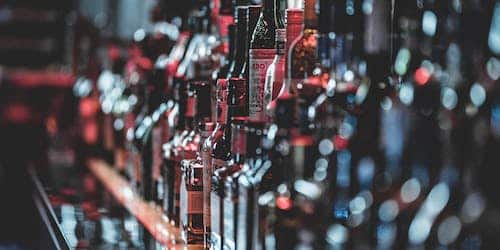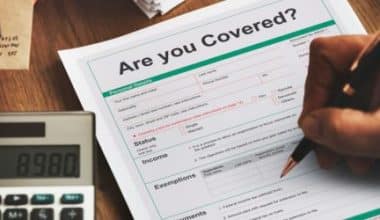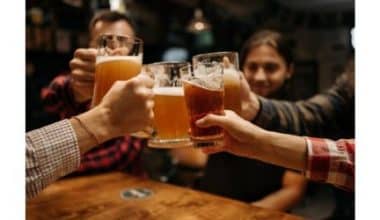Liquor liability insurance is a type of insurance that protects businesses that serve alcohol from financial losses in the event of a lawsuit. Businesses need to have liquor liability insurance in place to protect themselves from financial ruin.
This article will discuss the benefits of having liquor liability insurance, the costs, the best companies, how to choose a policy, and what to look for in a policy. We will also provide tips on how to file a claim on your liquor liability insurance policy.
What is Liquor Liability Insurance?
Liquor liability insurance protects firms that sell, serve, or distribute alcoholic beverages. This sort of business insurance can help cover claims for physical harm or property damage caused by an inebriated consumer after a firm has served them alcohol. This is available as a standalone policy or as an endorsement of general liability insurance coverage.
If your company is sued, liquor liability insurance can help protect it by covering:
- Legal costs
- Settlements or verdicts
- Property damage repair costs
- Medical expenses for injury treatment
What Does Liquor Liability Insurance Cover?
Liquor liability insurance provides coverage for claims including drunk driving, assaults, and property damage.
Here are a few instances of what liquor liability insurance covers:
- After your restaurant overserved them, a customer is injured in an accident.
- A minor purchases booze from your store becomes inebriated, and smashes a vehicle into the storefront.
- An overserved customer assaults someone outside your establishment.
- An employee consumes alcohol on the job and causes bodily harm or property damage to another person.
- A liquor liability insurance coverage can help if your small business is sued by covering:
- Costs associated with litigation, settlements, and verdicts
- Medical expenses
- Cost of Repairing Damaged Property
What Does Liquor Liability Insurance Not Cover?
Even if an inebriated patron causes damage to your business property, liquor liability insurance will not cover it. Commercial property insurance is required if you want coverage for your business property, such as your building, inventory, and equipment.
Why is Liquor Liability Insurance Important?
Although general liability insurance often covers the costs of most accidents, it typically excludes alcohol-related liability. That’s where liquor liability insurance, sometimes known as dram shop insurance, comes in.
This policy covers the costs of personal harm or property damage caused by the sale or serving of alcoholic beverages. For example, if your bar serves an inebriated customer who goes on to create a brawl or break someone’s property, liquor liability insurance would cover your legal costs.
To obtain a liquor license, most states require businesses to have liquor liability insurance. You may also require it to sign a commercial lease or a loan arrangement.
Most states’ dram shop laws place the liability for damages caused by an intoxicated consumer on the business that supplied them, making this coverage crucial even if it is not mandated by law.
What is the Cost of Liquor Liability Insurance?
The average monthly cost of liquor liability insurance for Insureon customers is $55.
Insurance companies will consider various criteria when calculating your premium, including:
- Industry risks
- Business address
- Alcohol sales as a percentage of total sales
- Claims history
- Policy exclusions and deductibles
Who Needs Liquor Liability Coverage?
To safeguard against financial losses or to comply with state regulations and contracts, every business that sells or serves alcohol must have liquor liability insurance. Several industries, in particular, require this coverage more frequently than others, including:
#1. Food and beverage companies
Liquor liability insurance protects restaurants, catering businesses, food trucks, and other establishments that serve alcohol from financial damages. If you provide alcoholic beverages to your customers, most states need this coverage.
For example, an inebriated pub patron may collide with another patron, who falls and fractures an arm. When the wounded customer sues your company to recuperate their medical expenditures, your liquor liability policy will cover the cost of the ambulance travel and emergency room visit.
#2. Retailers
Most states need liquor liability insurance for any establishment that sells beer, wine, or liquor. This is true for any establishment that sells alcoholic beverages, including grocery stores, convenience stores, breweries, and vineyards.
If an inebriated customer purchases an alcoholic beverage from your liquor store and subsequently breaks a car window, your liquor liability policy will pay to replace the smashed glass or cover legal costs if the car’s owner decides to sue.
#3. Distributors and manufacturers
In addition to product liability insurance, every business that manufactures, distributes, or transports alcoholic products should carry liquor liability insurance. That’s because you can be held liable for any injury caused by your items, even if you weren’t the one who sold them to the customer.
For example, suppose a client who consumes a beverage manufactured at your company becomes intoxicated and a quarrel escalates into physical violence. If the injured party believes your company was responsible for marketing a product with a deceptively high alcohol level, they may claim damages from your company.
States With No Dram Shop Legislation
Dram shop rules hold small companies accountable for selling alcohol to persons who injure or damage property. Most states have some form of dram shop law, with laws differing from state to state, but the following states do not:
- Delaware
- Kansas
- Maryland
- Nevada
- The state of South Dakota
- Virginia
Why Is Liquor Liability So Costly?
Due to the complexity of the industry and the considerations that underwriters examine when pricing and structuring policies, liquor liability insurance can be costly. Important considerations include:
#1. Type of location:
The venue’s principal purpose has a substantial impact on risk.
Restaurants that focus on food are less dangerous than nightclubs that focus on entertainment. Taverns and bars fall somewhere in the middle. Coverage is also required for facilities that sell alcohol to the general public, such as concerts and special events.
#2. Venue location:
State liquor laws and dram shop rules differ significantly, determining liability requirements for alcohol-serving establishments.
Tough jurisdiction raises risk and costs, whereas friendly jurisdiction makes it more difficult to show venue fault.
#3. Percentage of total liquor sales:
Higher premiums result from higher alcohol sales percentages. A restaurant with significant alcohol sales may be considered a bar, whereas bars with dance floors and heavy liquor sales may be considered nightclubs.
#4. Individual risk characteristics:
Underwriters look at things like entertainment offerings, patronage, proximity to colleges, management experience, loss prevention measures, security arrangements, employee background checks, security-to-patron ratios, staff training, policies for dealing with intoxicated patrons, the presence of minors, security cameras, and more.
How To Save Money on Liquor Liability Insurance
Small business owners can save money on liquor liability insurance by doing the following:
- Combining your liquor liability insurance with another sort of insurance, such as special event insurance
- Paying premiums in advance rather than monthly
- Managing dangers through staff alcohol training and the provision of water alongside alcoholic beverages
How to Find the Most Affordable Liquor Liability Insurance
Many business insurance firms provide liquor liability insurance, so it’s a good idea to acquire quotes from several insurers to discover the best deal. For other forms of coverage, a good place to start is with your small business insurance.
In most cases, liquor liability insurance can be added as an endorsement to a general liability insurance policy. Liquor liability insurance can also be acquired alone or as an add-on to a business owner policy (BOP).
Check with small business insurance providers for an estimate on liquor liability coverage. You can receive an online estimate by working with your agent or visiting company websites.
Best Liquor Liability Insurance Companies
We looked at over 30 firms before settling on the six best liquor liability insurance providers based on coverage alternatives such as liability addendums, pricing, geographical availability, risk classes that were excluded, and financial stability ratings. Before shopping around for coverage, make sure to check with your state’s laws surrounding your business or event.
- Westchester Binding: The best overall.
- biBERK: The best option for small businesses.
- Admiral: The best for bars.
- Founders Insurance: Ideal for restaurants.
- Markel: The best choice for hosts.
- FLIP: The best option for caterers.
#1. Westchester Binding
Because of the versatile and extensive coverage options offered by their monoline liquor liability insurance policies, Westchester Binding receives our best overall for liquor liability insurance companies. From private clubs to wholesale distributors, bars, and everything in between, liquor liability is offered to a wide range of businesses and services. Westchester offers liability coverage of up to $2 million.
Pros
- Retail outlets, bars, nightclubs, caterers, bartenders, banquet halls, and even private fraternal groups are all covered.
- Liquor liability plans can provide coverage of up to $2 million.
- There is no restriction on alcohol sales.
- There is coverage for assault and battery.
- On-premises and off-premises operations are governed by the same policy.
Cons
- Restriction applies to wineries, after-hours clubs, and establishments with aggressive drink discounts.
- If you have a history of prior liquor or assault and battery claims, you may have difficulty obtaining coverage.
- Not available in all states.
- Certain businesses face lower sublimits than others.
#2. biBERK
biBERK provides full commercial liability coverage with the option to add liquor liability. BiBERK plans, a Berkshire Hathaway brand, include a long variety of coverage alternatives to assist in personalizing the policy to your organization’s needs. You can save up to 20% on rates because they don’t use brokers or other middlemen, earning this insurer the top rank for small business coverage.
Pros
- You can obtain a quote totally online, or you can speak with an agent if you prefer a more customized touch.
- Policies are offered directly; because there are no brokers, policies might cost up to 20% less than those supplied by other insurers.
- BiBERK’s underwriter businesses are all A++ rated.
- Claims can be submitted online, by phone, or by email.
Cons
- BOP insurance are now available in only 28 states, whereas general liability policies are available in 27 states.
- You cannot select your own liquor liability coverage limits online.
- There is no such thing as standalone liquor liability insurance.
- There are no short-term insurance available; only annual coverage is available.
#3. Admiral
Admiral provides liquor liability coverage in 47 states, with few exclusions and restrictions, for companies such as bars, which are generally more difficult (and more expensive) to insure. They are the best liquor liability insurance for bars because it offers up to $1 million in coverage as part of a general liability policy or as a monoline (standalone) policy.
Pros
- Liquor liability coverage can be added to a general liability policy or purchased separately.
- Coverage is available in 47 states.
- Admiral has fewer excluded classifications of coverage than other insurance firms.
- Limits the amount of liquor liability coverage to $1 million
- There is coverage for assault and violence up to $250,000 available.
Cons
- A broker will be required to purchase the policy.
- Admiral will not discuss your insurance with you directly; instead, they will send you to your local broker.
#4. Founders Insurance
With monoline plans tailored exclusively to the hospitality industry, Founders Insurance earned the title of best restaurant liquor liability insurance. Their policies are broad, enabling eateries to stay open late, feature live entertainment, or have recently filed liability claims.
Pros
- In 18 states, it provides monoline liquor liability.
- A wide range of risk classes are allowed.
- Liquor liability coverage of up to $2 million in total
Cons
- Quotes are not available online.
- Some states exclude coverage for assault and battery.
- Coverage must be obtained through an agent.
#5. Markel
Markel Insurance ranks first in host liquor liability insurance, with customized event coverage starting at $75. Policies can be purchased up to the day before your event, and cancellation coverage can be added at an additional cost.
Pros
- Private parties, wedding events (rehearsal, ceremony, reception), and business/organization gatherings are all covered.
- You can purchase a policy as late as one day before your event.
- Coverage is guaranteed to meet the insurance requirements of your venue (or your money back).
- All special event policies contain host liquor liability coverage by default, although it can be withdrawn for a premium credit.
Cons
- If your event will feature animals, firearms, or amusement devices such as bounce houses, dunk tanks, inflatable slides, or moonwalks, policies will not be provided.
- There are just three coverage options to choose from, with a maximum aggregate limit of $2 million.
- If you want the most coverage possible, you must confirm that the alcohol will be served at your event by a licensed vendor or caterer.
What Is the Difference Between Liquor Liability Insurance and General Liability Insurance?
Liquor liability insurance and general liability insurance can both assist in paying for claims against business owners for risks related to alcohol. They do, however, each give distinct coverage for specific types of scenarios.
General liability insurance protects your company from litigation resulting from third-party injuries or property damage. This insurance frequently includes host liquor liability coverage, which can cover claims involving a guest who consumes too much alcohol at a business-hosted event and subsequently causes third-party property damage or bodily injury as a result of their intoxication
Liquor liability insurance differs from this coverage in that it protects businesses that sell or serve alcohol for profit from claims involving inebriated clients who cause physical harm or property damage to others. State-dram shop regulations frequently mandate this coverage for any business that makes, serves, or sells alcohol.
What Is the Difference Between Liquor Liability and Host Liquor Liability Insurance?
Liquor liability insurance is intended for firms that sell alcohol, but other businesses can be exposed to the same dangers if they serve alcohol during a company gathering. Corporate activities, fundraisers, and other events where alcohol is provided are covered by host liquor liability insurance, which is frequently included in general liability insurance.
If your company is organizing an event with other particular hazards, you should consider special event insurance, as your general liability coverage normally only covers risks encountered during normal business operations.
Do I Need Liquor Liability Insurance Coverage if My State Does Not Have Dram Shop Laws?
Even if your state does not have strict shop regulations, you are still subject to lawsuits if you sell or serve alcohol. In reality, anyone can sue your company if they believe you were in some way responsible for the conduct of an inebriated consumer.
Even if the court rules in your favor, your company will still have to pay for attorney’s fees and court costs, which can be substantial. Furthermore, you may still require liquor liability insurance to obtain a liquor license, sign a lease, or qualify for a loan.
That is why, regardless of state restrictions, it is critical for every business that profits from liquor sales to carry this coverage.
What Additional Types of Liquor Liability Coverage Could I Require?
You can tailor your liquor liability insurance policy by including coverage for specific risks like assault and battery claims or mental losses. You may also only require short-term coverage, such as one that covers a bartender during a wedding or other event.
Depending on business requirements, you may be able to add this coverage to your general liability insurance policy or purchase it separately.
- Ohio Small Business Health Insurance: Complete Guide
- HOW TO SAVE MONEY CAR INSURANCE: Proven Tips & Steps
- DO I NEED BUSINESS INSURANCE? Why & When
- Cheap Small Business Insurance: Best of 2023






